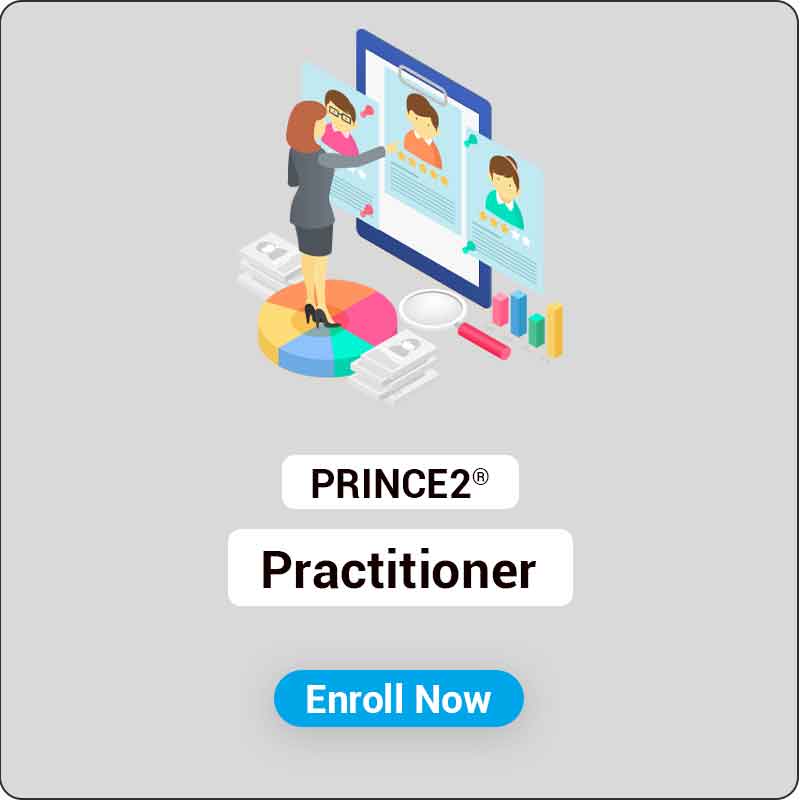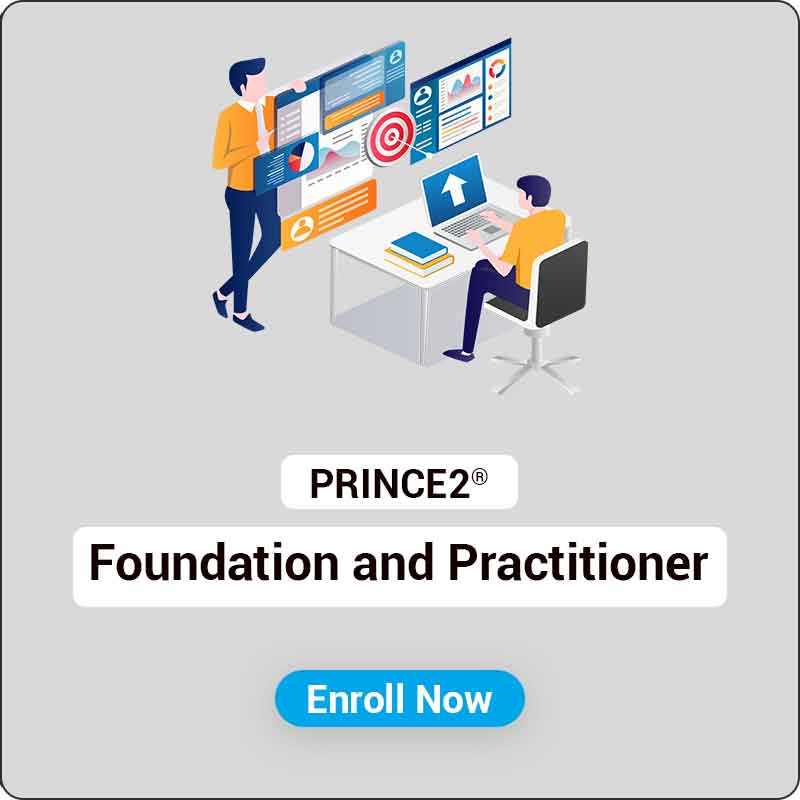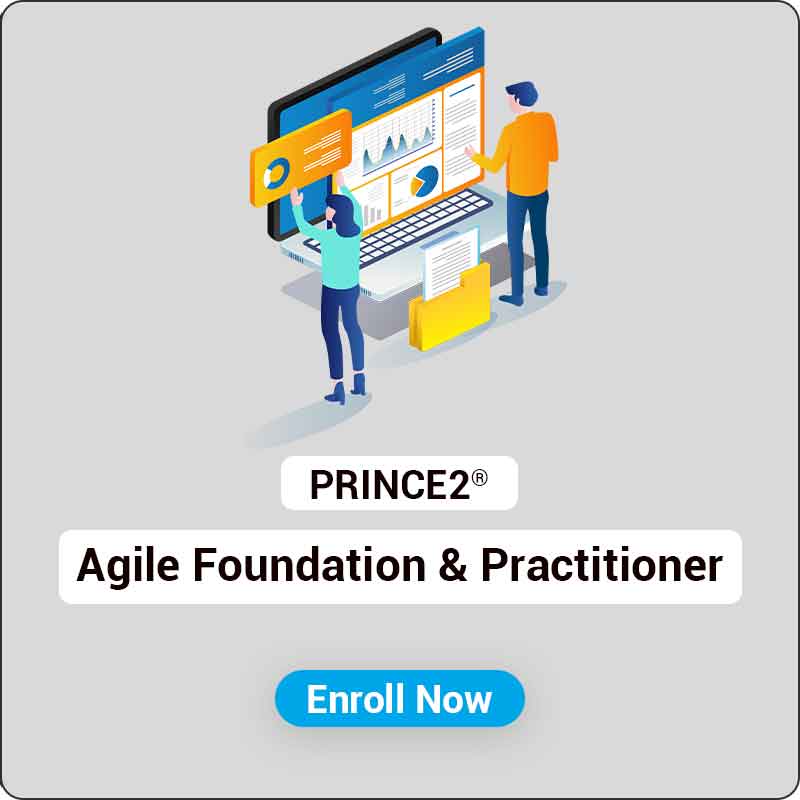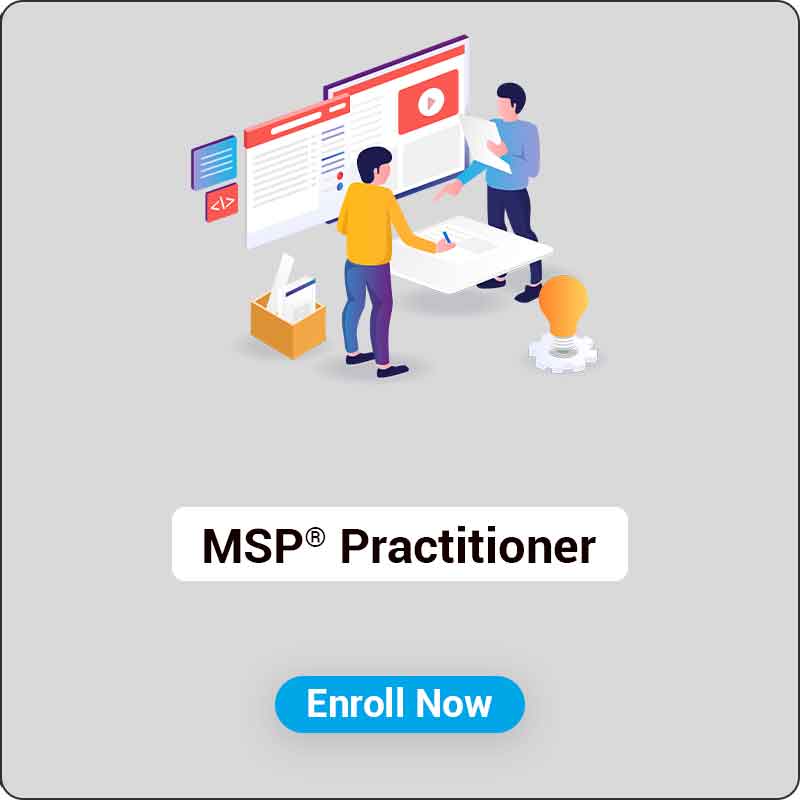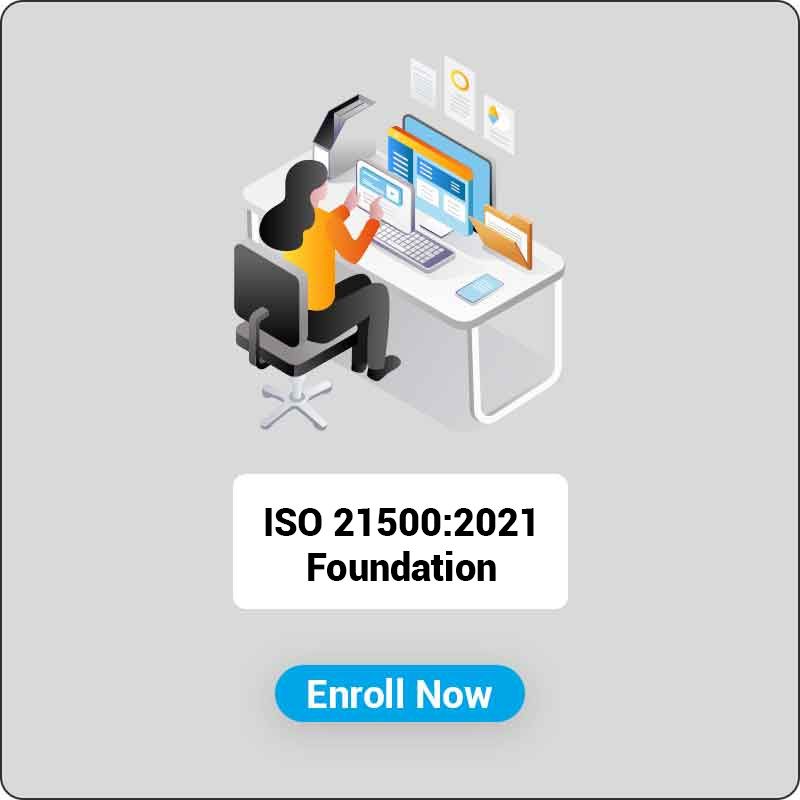MSP Foundation & Practitioner
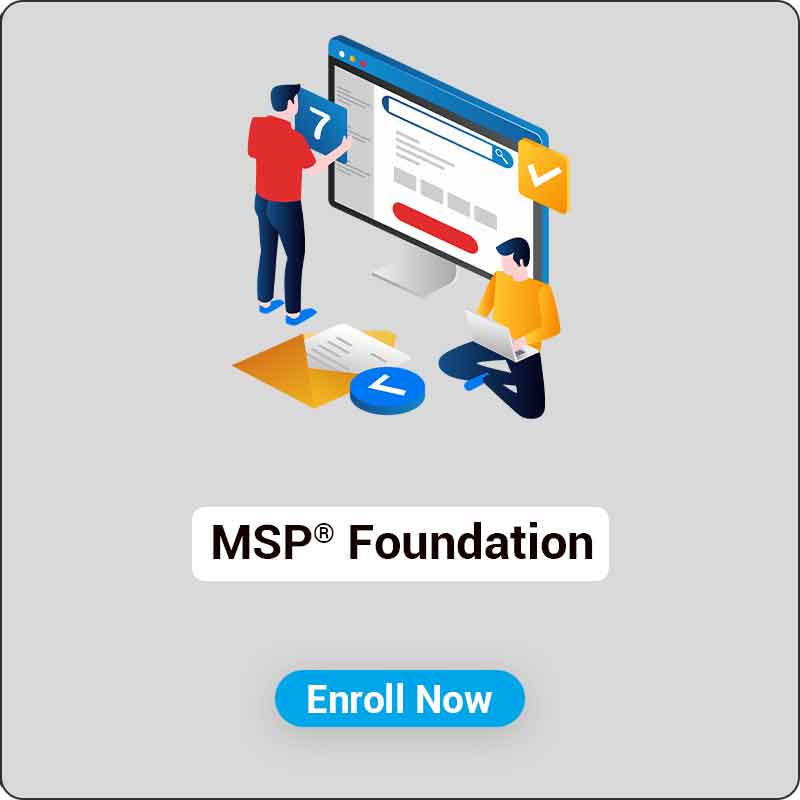
Accredited By
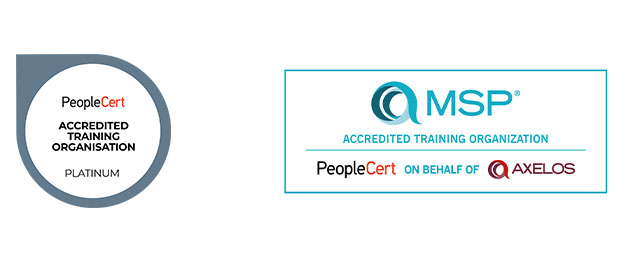
Course Package
Exam Voucher by PeopleCert
Official Training Material from PeopleCert
Official MSP Foundation & Practitioner E-Book
Highly Experienced & Accredited Instructor
Live Instructor-Led Sessions
Real Life Examples & Case Studies
Lifetime LMS Access
K-Prime Warranty
Target audience
The target audience for the MSP Foundation and Practitioner certifications consists of individuals who manage or contribute to programmes within an organisation, or who are responsible for their management. The precise target audience may consist of:
-
Program Managers
-
Project Managers
-
Senior Executives and Managers
-
Program Team Members
-
Consultants and Advisers
-
Business Change Managers
-
Business Analysts
-
PMO (Project Management Office) Staff
Pre-requisites of MSP Foundation & Practitioner Certification Training
The following are prerequisites for MSP Foundation and Practitioner certifications:
-
MSP Foundation: MSP Foundation has no formal prerequisites. It is available to anyone with an interest in programme management and the MSP framework.
-
MSP Practitioner: Before sitting the Practitioner exam, you must first pass Foundation.
Additionally, familiarity with programme management terminology and practises will facilitate the MSP Foundation and Practitioner learning processes.
Exam and Certification information
MSP Foundation Exam
-
Exam Type: Multiple Choice Questions (MCQs)
-
No. of Questions: 60
-
Exam Duration: 60 minutes
-
Pass Marks: 36 out of 60 (60%)
-
Exam Type: Closed Book
MSP Practioner Exam
-
Exam Type: Multiple Choice Questions (MCQs) and Scneraio based exam.
-
No. of Questions: 70
-
Exam Duration: 2.5 hours (150 minutes)
-
Pass Marks: 42 out of 70
-
Exam Type: Open Book
MSP Foundation & Practitioner Certification Journey
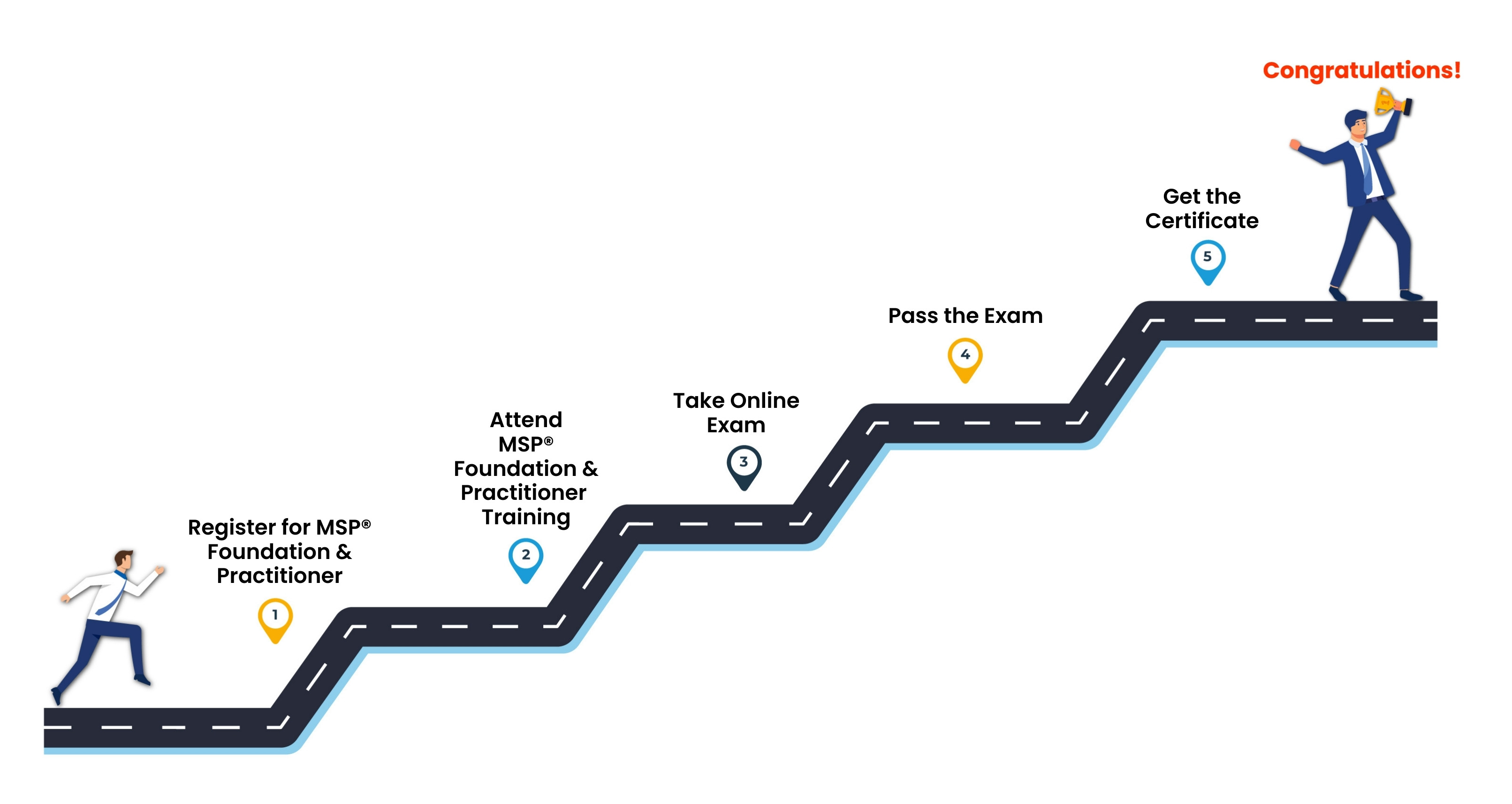 Other Important Information
Other Important Information
The questions on both exams are scenario-based, and you must employ your knowledge of MSP principles, themes, and processes to choose the best responses. To prepare for the exams, it is essential to comprehensively study the MSP methodology, comprehend the concepts, and practise answering sample questions.
MSP Foundation and Practitioner certifications have the following learning objectives:
MSP Foundation:
-
Comprehend the essential programme management concepts, principles, and terminology according to the MSP framework.
-
Comprehend the structure of the MSP framework, including governance themes, transformational flow, and programme lifecycle.
-
Learn the roles and responsibilities within a programme, as well as their relationships with other stakeholders.
-
Understand the approach to benefits management and its significance in programme management.
-
Learn how the MSP principles guide effective programme management.
-
Understand the main MSP processes and their function in programme management.
-
Learn the core concepts of MSP, such as leadership and stakeholder engagement, benefits realisation, organisation, risk management, and planning and control.
MSP Practitioner:
-
Apply the MSP framework and principles to programme management scenarios in the real world.
-
Understand the application of governance concepts to programme management.
-
Utilize the transformational flow and lifecycle in programme planning and delivery.
-
Utilize the MSP principles to guide programme management decision-making and problem-solving.
-
Utilize effective engagement strategies and communication techniques in the context of a programme.
-
Create and implement a benefits management strategy that includes the identification, definition, delivery, and evaluation of programme benefits.
-
Utilize risk and issue management techniques to address programme delivery challenges and uncertainties.
-
Develop a programme plan and implement effective programme controls in order to monitor and manage programme progress.
-
Understand the roles and responsibilities of team members and stakeholders in programme management.
-
Prepare for the MSP Practitioner exam and demonstrate knowledge of the MSP framework and its application in practise.
Course Outline
- Definition and importance of program management
- Overview of the MSP framework and its key concepts
- Benefits of adopting MSP for managing programs
- Overview of the seven MSP principles
- Understanding the purpose and application of each principle
- Examples and case studies illustrating the use of MSP principles
Check Our Upcoming Batches
Frequently Asked Questions.
MSP Certification strengthens your program management capabilities, boosts career opportunities, and ensures the successful delivery of programs.
Yes, all MSP® training courses are fully accredited by PeopleCert on behalf of AXELOS.

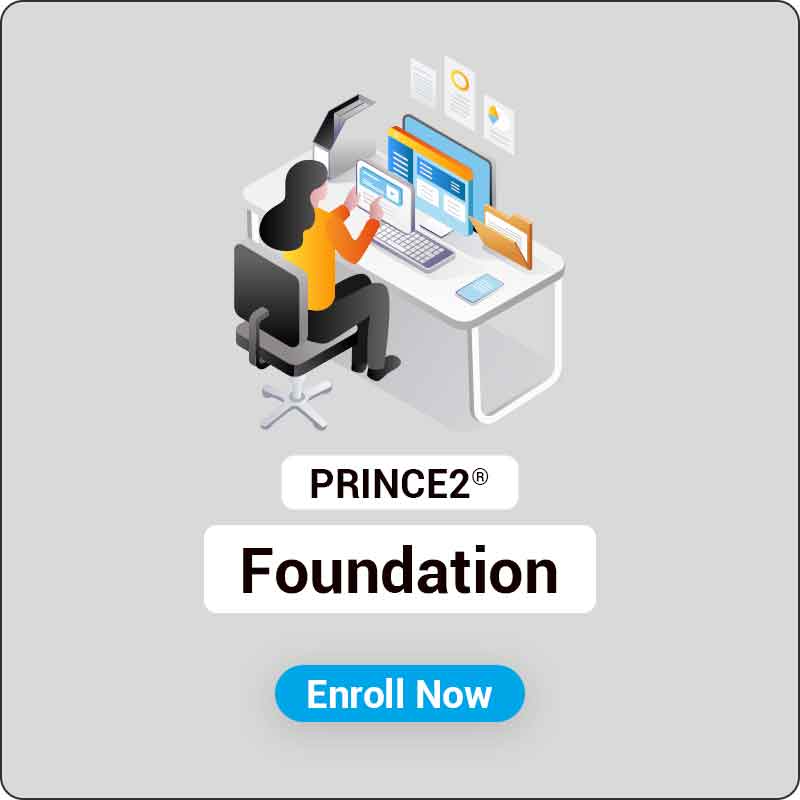
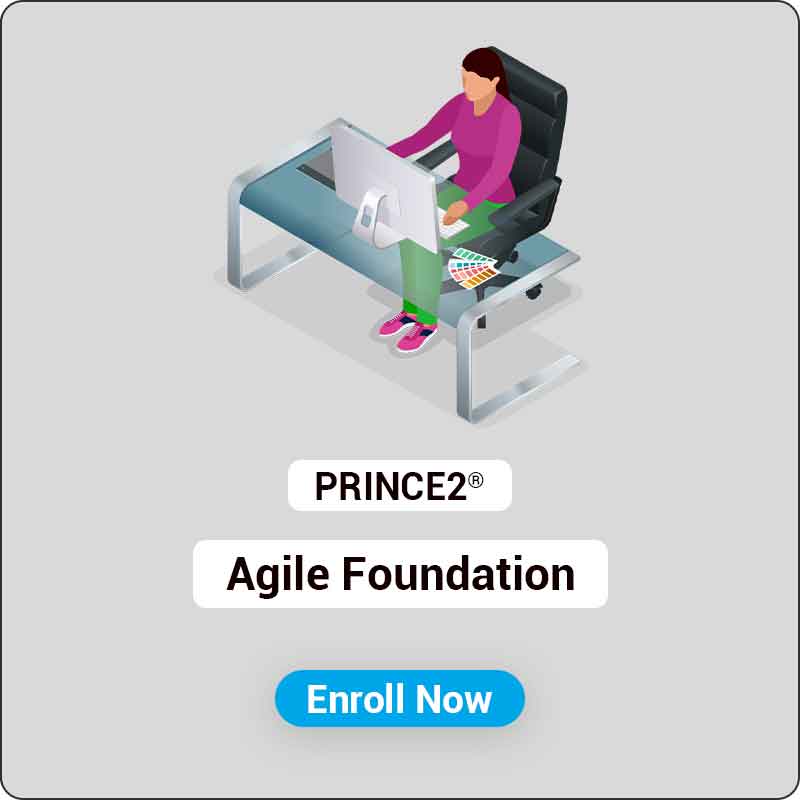
.jpg)
-compressed.jpg)
